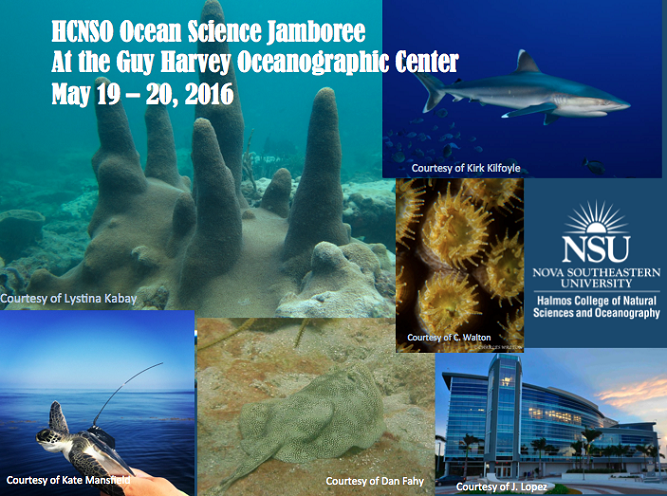Using engineered bacteria to understand the dynamics of microbial cooperation
Location
Guy Harvey Oceanographic Center Facility
Start
5-20-2016 3:45 PM
End
5-20-2016 4:00 PM
Abstract
Cooperation in microbial systems is tremendously diverse and coordinates several critical behaviors including the formation of the rhizosphere, bacterial pathogenesis and antibiotic resistance. Many studies have examined the mechanisms that govern cooperation to enhance or disrupt cooperative behaviors. Enhancement of cooperation may lead to more sustainable farming practices and augment microbiome health. Disruption of cooperation may slow bacterial pathogenesis or allow bacteria to become more susceptible to antibiotics. While our understanding of the dynamics of microbial cooperation is increasing, naturally occurring microbial systems are incredibly complex. This complexity may serve to obscure the core dynamics that are driving cooperation. As an alternative approach, the use of engineered bacteria tends to remove these complexities allowing cooperative dynamics to be studied and perturbed in isolation. In this talk, I will review recent findings from our laboratory that use synthetically engineered cooperative bacteria to understand the constraints of cooperation. Specifically, I will highlight how dispersal and spatial structure, and its disturbance, are critical factors in determining whether or not cooperation can occur. The results from these studies may have wide implications in multiple cooperative systems, including those outside bacteria.
Using engineered bacteria to understand the dynamics of microbial cooperation
Guy Harvey Oceanographic Center Facility
Cooperation in microbial systems is tremendously diverse and coordinates several critical behaviors including the formation of the rhizosphere, bacterial pathogenesis and antibiotic resistance. Many studies have examined the mechanisms that govern cooperation to enhance or disrupt cooperative behaviors. Enhancement of cooperation may lead to more sustainable farming practices and augment microbiome health. Disruption of cooperation may slow bacterial pathogenesis or allow bacteria to become more susceptible to antibiotics. While our understanding of the dynamics of microbial cooperation is increasing, naturally occurring microbial systems are incredibly complex. This complexity may serve to obscure the core dynamics that are driving cooperation. As an alternative approach, the use of engineered bacteria tends to remove these complexities allowing cooperative dynamics to be studied and perturbed in isolation. In this talk, I will review recent findings from our laboratory that use synthetically engineered cooperative bacteria to understand the constraints of cooperation. Specifically, I will highlight how dispersal and spatial structure, and its disturbance, are critical factors in determining whether or not cooperation can occur. The results from these studies may have wide implications in multiple cooperative systems, including those outside bacteria.


